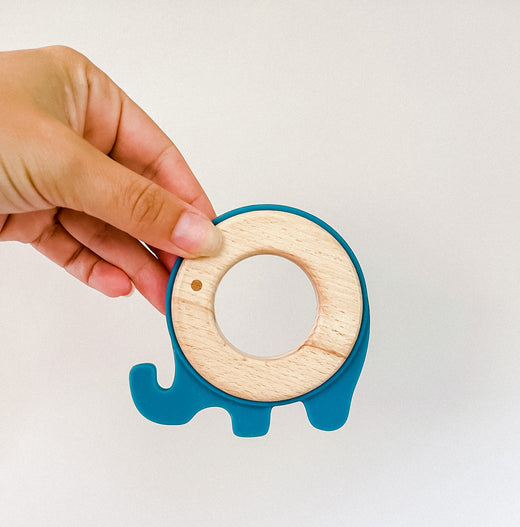Getting Through the 4-Month Sleep Regression
Thank you to Larissa O'Loughlin, RN for this super insightful article!
If this (or any) stage is particularly challenging for you, please reach out at larissa@themamacoach.us. She provides families with customized sleep support with absolutely no judgment. For more sleep tips, follow her on Instagram at @themamacoach.larissa.
The 4-Month Sleep Regression. Add that to the list of phrases you had never heard before you became a parent. What exactly is the 4-month sleep regression and how can you best move through it without losing too much sleep and sanity?
Infants experience multiple sleep regressions in the first year of life, but the 4-month regression sticks out as the most challenging. It’s actually poorly named, as it’s not a regression, but a permanent shift in how your baby sleeps.

During this phase, a baby’s sleep changes to become more adult-like, and that’s why (for many babies), it results in more night wakings. Around 12 weeks old, a baby starts to develop their own circadian rhythms, which helps them differentiate between day and night. This change means that instead of moving seamlessly between light and deep stages of sleep throughout the night, your baby now has a more mature sleep cycle that lasts about 30-45 minutes.
Instead of easily transitioning from light sleep back into deep sleep, your little one is now aware enough to notice a change in their environment. If they are used to falling asleep while feeding or being rocked in your arms, when they lightly awaken between sleep cycles, the surprise of being in an unfamiliar environment results in a full waking. They want their original sleep conditions back! Enter Mom and Dad -- going in to rock, feed, or pop a pacifier back in. Your 3-5 month old might go from sleeping 5-8 hours at night, to suddenly waking every 1-2 hours. Not fun for anyone.

So when does this regression end? Some babies manage to fly right through this developmental milestone without many hiccups while others really struggle to learn how to fall asleep on their own, and will continue to protest until mom and dad come in to help.
The best thing you can do to manage the 4-month sleep regression is to help your baby build independent sleep skills by working to eliminate their sleep props. A sleep prop is anything that helps your baby to fall asleep that can’t be present throughout the entire night. Examples are feeding to sleep, being bounced, and a pacifier (if the baby is too young to reinsert it themselves). Start at bedtime, by putting your baby down awake and having them fall asleep in the same place you want them to be sleeping throughout the night. If you haven’t already, establish a bedtime routine so your baby knows what to expect every night. Once your baby feels secure in their own space, the night wakings should


During the day -- focus on providing your baby with lots of opportunities to fill their calorie cup. Make sure they are taking in frequent and effective feeds throughout the daylight hours so they aren’t dependent on their night wakings for nutrition. If you think your baby is waking during the night out of habit and not because of hunger, don’t respond with a feed. Staying consistent will help get you and your baby get through this regression!
(Keep a teething necklace on hand for middle-of-the-night wakings and teething relief!)







